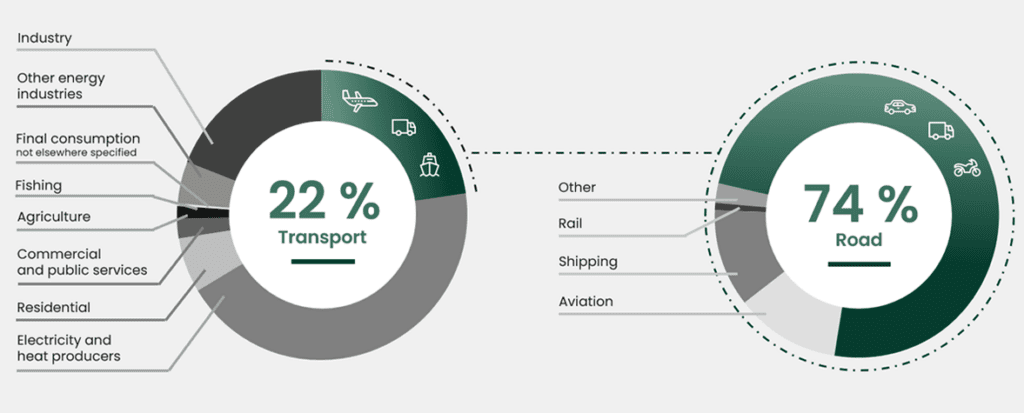Home Decarbonisation
Decarbonising roads
Maintaining the global road network plays an important role in this strategy. The transport sector has been identified as a major contributor to the global effort to reduce emissions by 2030 in order to achieve carbon neutrality (2050).
Countries and local authorities are among the main players in the effort to decarbonise roads. They are called upon to implement road maintenance policies and practices that help to reduce carbon emissions, while meeting the mobility needs of their populations.
This is where preventive road maintenance comes into its own.
State of play
Globally, transport is responsible for almost a quarter of greenhouse gas (GHG) emissions. The road sector accounts for almost 75% of these emissions.

Preventive maintenance of road assets, the main lever for decarbonising roads
Our experts have a thorough understanding of the condition of your road assets, based on a precise survey of damage, which enables them to develop customised maintenance strategies for your area.
These strategies encourage the adoption of preventive maintenance, which is crucial and plays a significant role in the decarbonisation effort. This preventive maintenance will consist of carrying out regular maintenance work on the roads as soon as the first symptoms appear. It will prevent major damage from developing to the point where major renovation is required. This can include repairs such as resurfacing, crack sealing, etc.
Preventive road maintenance is beneficial in three main ways:

An impact on emissions from vehicles using the roads
A well-maintained road can reduce emissions from the vehicles using it by almost 10%
Reducing greenhouse gas emissions

Impact on maintenance work
Allowing damage to deteriorate means that repairs have to be carried out on a larger scale, taking longer, costing more and emitting far more greenhouse gases (quantity of materials, use of heavy machinery, etc.). Regular preventive pavement maintenance can reduce greenhouse gas emissions by an average of 35%.

Impact on congestion and diversions
Extensive refurbishment of one of your network’s main routes can result in temporary signposting that has an impact on traffic. Construction site traffic lights will cause peaks in CO2 emissions, just as diversions will lengthen journey times and have a negative impact on the bypass network, with the appearance or increase in damage already present.
